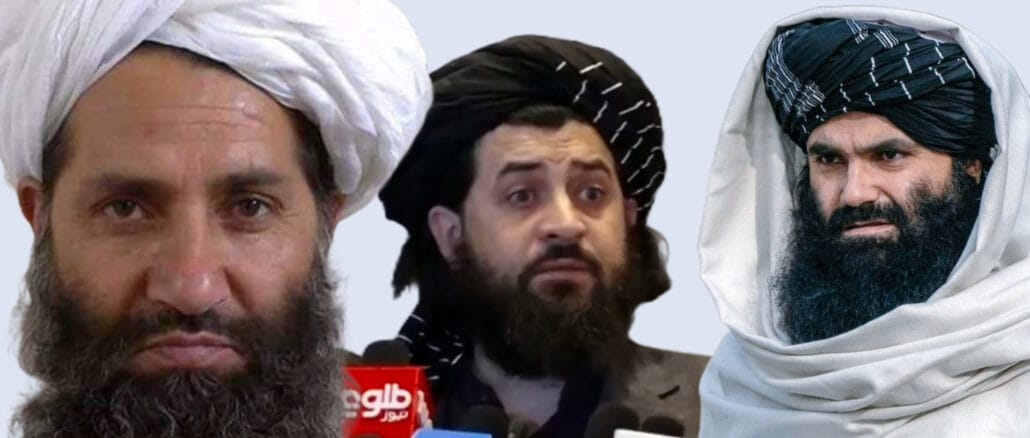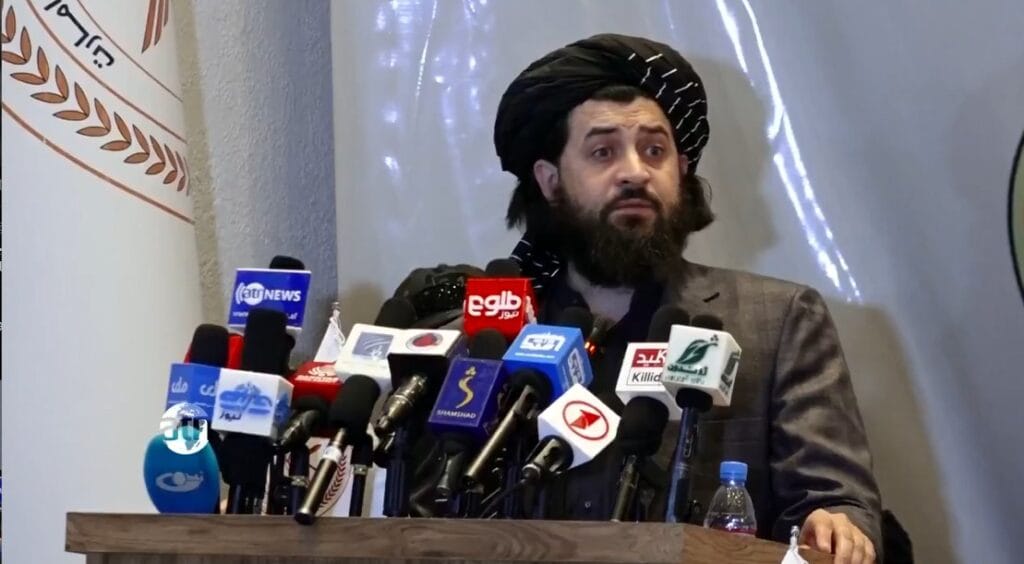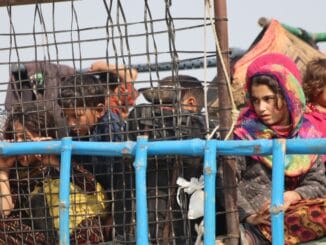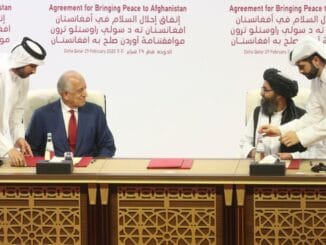
Senior Taliban officials have publicly denied reports of internal divisions within the group’s leadership, following growing speculation over the recent absence of key figures from public view.
Mullah Abdul Ghani Baradar, the Taliban’s deputy prime minister, returned to Kabul on Thursday after a trip to Doha and dismissed the claims as “propaganda.” Speaking at an economic project inauguration, Baradar stated that the Taliban leadership remains united and criticized the media for what he described as the spread of misleading information.
“This system was built on obedience and mutual respect. These principles will endure under the Islamic Emirate,” Baradar said. “Our only focus is on implementing Sharia, rebuilding the country, and ensuring prosperity for our nation.”
The Taliban’s chief of army staff, Fasihuddin Fitrat, echoed Baradar’s remarks during an address at Sardar Mohammad Dawood Khan Hospital in Kabul, rejecting claims of internal discord as efforts to destabilize Afghanistan.
“They talk about divisions among our leadership, rifts among our fighters, or even ethnic tensions. These are all tactics to weaken Afghans,” Fitrat said.

Mullah Yaqoob Calls for Patience, Avoids Direct Denial
Mullah Yaqoob Mujahid, the acting defense minister and son of Taliban founder Mullah Mohammad Omar, also addressed the speculation while inaugurating new medical facilities at the same hospital. Unlike Baradar and Fitrat, Yaqoob did not explicitly deny reports of discord but emphasized patience and dialogue.
“If someone has demands, or if the nation has concerns, these cannot be resolved in a day or two. Sometimes, resolving certain issues creates even bigger challenges,” he said. “For the sake of lasting security, stability, and Afghanistan’s future, we must exercise patience and wisdom in addressing our problems.”
Notable Absences Fuel Speculation
Despite public reassurances, the absence of one key figure has drawn attention. Sirajuddin Haqqani, the acting interior minister and leader of the Haqqani Network, has not publicly commented on reports of tensions between himself and the Taliban’s supreme leader, Mullah Haibatullah Akhundzada.
Haqqani traveled to the United Arab Emirates and later to Saudi Arabia roughly a month ago. While some reports suggest he has returned to Afghanistan, independent sources have not confirmed his whereabouts.
Speculation over internal divisions intensified after the Taliban’s leadership reportedly ordered the arrest of Sher Mohammad Abbas Stanikzai, Afghanistan’s deputy foreign minister, weeks ago. Stanikzai, known for advocating girls’ education, had repeatedly criticized leadership decisions on the matter. Following the arrest order, he is believed to have left Afghanistan with assistance from Taliban officials in Kabul and is reportedly residing in the UAE.
Unanswered Questions Remain
While Taliban leaders insist there is no internal strife, unanswered questions-including Haqqani’s silence, Yaqoob’s measured remarks and Stanikzai’s apparent exile continue to fuel speculation.
The Taliban dismisses these reports as baseless, but the lack of full transparency leaves uncertainty over whether tensions exist within the group’s upper ranks.





Be the first to comment